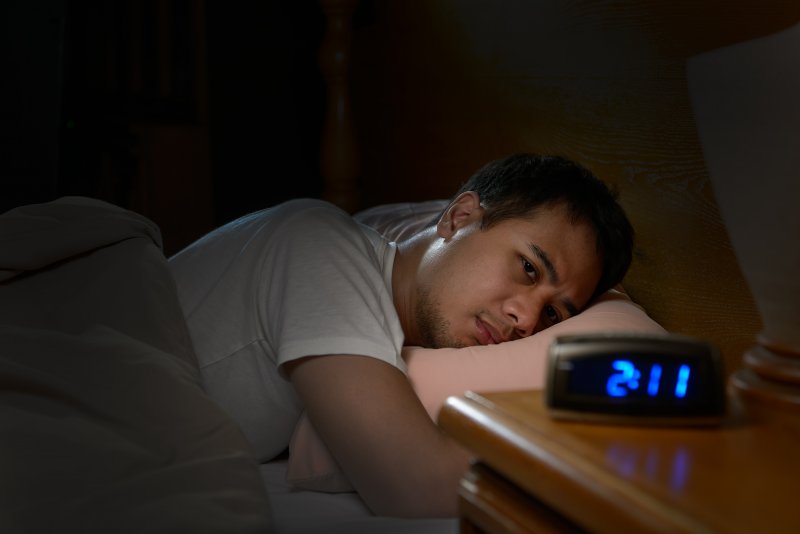
Most adults think their bedwetting days are far behind them, which is why it can be very embarrassing to find a damp spot on your sheets when you wake up in the morning. If it only happens every once in a while, you have nothing to worry about. But if you end up wetting the bed on a frequent basis, it could be a telltale sign that you have sleep apnea – and that means you have far larger health issues to worry about. Read on to learn why your frequent nightly trips to the bathroom might be a sign of a sleep disorder.
The Link Between Bedwetting and Sleep Apnea
Bedwetting may be the symptom that’s most closely associated with sleep apnea after bedwetting. In fact, those with untreated sleep disorders may need to go the bathroom 6 or more times every night. This is a side effect of the decrease of oxygen in your blood that naturally occurs when your breathing is interrupted. Carbon dioxide levels rise, the heart rate drops, and the blood becomes more acidic. Once your brain realizes something is wrong, you’ll be forcibly awakened for air. At that point, your heart will be beating much faster, and that sends a false signal to the rest of your body that you have an overload of fluids – in other words, you’ll suddenly need to urinate.
How Can You Stop Bedwetting Associated with Sleep Apnea?
The best solution is to stop your sleep apnea altogether. In most cases, nighttime bedwetting will stop altogether once the sleep disorder has been taken care of. Additionally, you’ll protect your entire body from the damage of sleep apnea that can put you at risk for heart problems and stroke. In order to properly address your sleep disorder, you’ll need to have it properly diagnosed. Then your sleep dentist can recommend oral appliance therapy or another suitable solution.
How to Reduce Sleep Apnea Symptoms
While professional intervention is usually required to truly treat sleep apnea, you can often reduce the symptoms associated with it – including bedwetting – by taking a few extra steps to improve the quality of your rest. This might include:
- Losing weight (since obesity is a large risk factor for sleep apnea)
- Sleeping on your side to ensure that your airway stays open while you’re resting
- Exercise for at least 30 minutes a day, even if it’s something simple like taking a brisk walk.
Ignoring sleep apnea is never the answer. The condition will only grow worse and ravage your health until it’s taken care of. Even if bedwetting and snoring are embarrassing, it’s important to acknowledge them as warning signs that you should speak to a sleep expert in the near future.
About the Author
Dr. Pamela West is a member of the American Academy of Dental Sleep Medicine, and she works with leading medical experts across Nevada to identify, diagnose, and treat sleep apnea. She’s had years of experience for helping patients recognize symptoms like bedwetting for what they are, and she provides custom oral appliances that can help you get a good night’s sleep. To schedule an appointment at her clinic, iSleep Solutions, visit her website or call (702) 602-2000.
